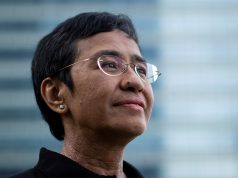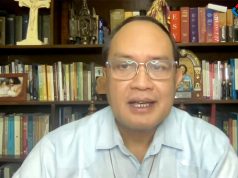EDITOR’S NOTE: Below is the position of Center for International Law, Philippines (CenterLaw) on the case of media outfit Rappler.
The advocacy group, which used to be headed by presidential spokesman Harry Roque, works for the recognition and application of international law norms, specifically those relating to human rights, humanitarian law, freedom of expression, and freedom of the press.
CenterLaw has been extending legal assistance to the family members and neighbors of persons killed in the government’s anti-drug operations in San Andres Bukid, Manila.
The alleged failure of Rappler to comply with constitutional restrictions on foreign ownership of Philippine media entities aside, the SEC’s decision is tantamount to prior restraint, and therefore comes with the heavy presumption of unconstitutionality.
The same constitution that prescribes restrictions on ownership of Philippine mass media is also the very constitution that has placed free expression at the topmost rungs of constitutional freedoms.
In the landmark decisions of the Supreme Court, the right to free expression has been considered as preferred to other rights, even those involving property rights (Philippine Blooming Mills case, G.R. No. L-31195, June 5, 1973).
The same High Court has also ruled that not every violation justifies the stifling of free speech, enjoining government to consider the totality of circumstances before penalizing the free exercise of speech and expression.
Early on, Rappler, known for its unflinching reportage of Duterte’s drug war, has caught the ire of the President. That this move to cancel its corporate registration is linked to the President’s public statements disparaging Rappler is proven by the fact that it was no less than the Office of the Solicitor General that so moved.
In fact, according to the Supreme Court’s ruling in Chavez v. Gonzales (G.R. No. 168338, February 15, 2008) such statements – coming from the Chief Executive himself – as they are, already constitute prior restraint because of their chilling effect on everyone else.
What the Solicitor General did is what lawyers call a “collateral attack” – restraining a known critic of the government’s drug war, not by directly censoring it but by cancelling its corporate registration.
But as every student of constitutional law knows, what may not be done directly, by the same token, may not be achieved indirectly.
If the annals of constitutional adjudication were to give an able guide, since press freedom is a preferred constitutional value in the Philippines, what the SEC should have done was to give Rappler an opportunity to correct its ownership structure. Instead, the SEC got down to business right away with guns blazing.
And there’s the thing: for Rappler claims the SEC denied them what it had in fact allowed other similarly placed entities to do. This smacks of a lack of due process, not to mention unequal treatment, which are also unconstitutional acts.
Thus, at best, the SEC’s decision is a prime example of outrageous legalism blind to law’s greater purposes; at worst, it is one cloaked with unconstitutional motivations.









